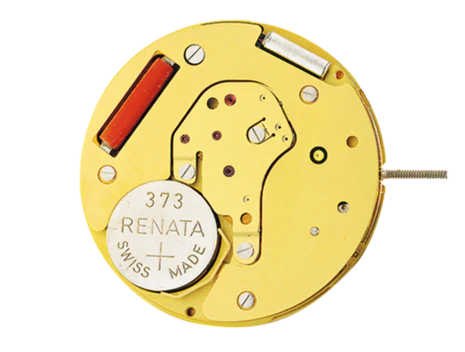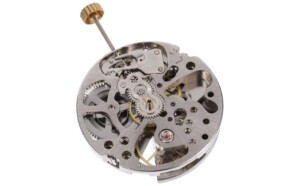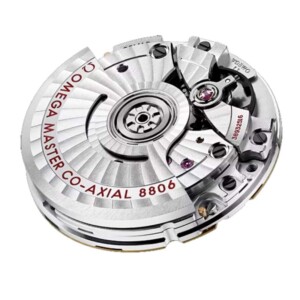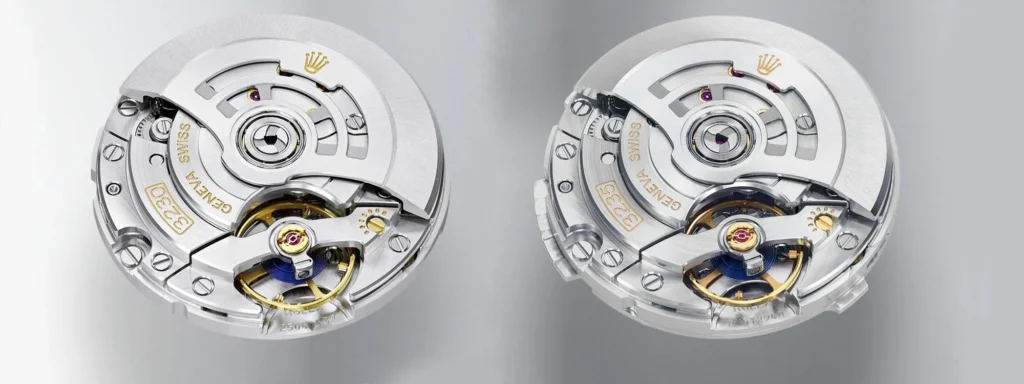Choosing a right watch is never easy especially when you have to choose between Quartz , Mechanical or an Automatic watch movement. Let’s dive in and see what really differentiate the all three movements and how they stand against each other. The movement, also called the caliber, is the engine that powers a watch. It’s what makes the hands tick and keeps time accurate. There are three main types of watch movements: quartz, mechanical, and automatic. Each type has its own charm, functionality, and fan base.
If you’ve ever wondered what sets these movements apart, this guide is for you. Let’s break it down in simple terms.
What is a Quartz Movement?
Quartz watches are powered by batteries. A tiny quartz crystal inside the watch vibrates when the battery sends an electric current through it. These vibrations (usually 32,768 per second) create a signal that keeps the watch ticking accurately.
Quartz movements are incredibly popular because they are affordable, reliable, and low maintenance. They don’t require winding, and they keep time better than other types. You can leave a quartz watch in a drawer for weeks, pick it up, and it will still be ticking perfectly.
For people who want a practical and fuss-free watch, quartz is the go-to option. Brands like Casio, Timex, and even high-end companies like TAG Heuer produce quartz watches that cater to a wide range of budgets.

Why Choose Quartz?
- Accuracy: Quartz watches are the most accurate type. They lose or gain just a few seconds per month.
- Affordability: Most quartz watches are budget-friendly.
- Low Maintenance: You only need to replace the battery every 1-2 years.
While quartz watches don’t have the same craftsmanship appeal as mechanical ones, they are perfect for everyday use.
What is a Mechanical Movement?
Mechanical watches are powered by a mainspring, a tightly coiled wire that stores energy when wound. This spring slowly releases energy, which powers the gears and moves the hands.
Unlike quartz watches, mechanical watches don’t use batteries. Instead, they rely on hand-winding. You’ll need to turn the crown (the small knob on the side of the watch) to wind the mainspring regularly.
Mechanical movements are prized for their craftsmanship. Each watch contains tiny gears, springs, and screws, all assembled by skilled watchmakers. Wearing a mechanical watch is like carrying a piece of art on your wrist.

Why Choose Mechanical?
- Craftsmanship: Mechanical watches showcase incredible engineering and precision.
- Longevity: With proper care, these watches can last for generations.
- Charm: The ticking sound and smooth sweeping motion of the second hand are mesmerizing.
However, mechanical watches require regular winding and are less accurate than quartz. They might gain or lose a few minutes each month.
What is an Automatic Movement?
Automatic watches are a special type of mechanical watch. They don’t need manual winding because they wind themselves. How? Through the movement of your wrist!
Inside an automatic watch is a rotor, a small weight that spins as you move. This motion winds the mainspring, keeping the watch powered.
Automatic watches are perfect for people who love the mechanics of a watch but don’t want the hassle of daily winding. However, if you don’t wear the watch regularly, it might stop and need winding or resetting.

Why Choose Automatic?
- Convenience: No need for daily winding—just wear it, and it stays powered.
- Elegance: Automatic watches often feature intricate designs and open-case backs to showcase the movement.
- Heritage: Owning an automatic watch feels like owning a piece of history.
That said, automatic watches are usually more expensive than quartz and require regular servicing.
Pros and Cons
Each type of movement has its strengths and weaknesses. Let’s take a closer look.
Quartz:
- Pros: Affordable, low maintenance, highly accurate.
- Cons: Lacks the charm and craftsmanship of mechanical watches.
Mechanical:
- Pros: Intricate design, long lifespan, smooth sweeping second hand.
- Cons: Requires regular winding, less accurate, costly servicing.
Automatic:
- Pros: No winding needed if worn, classic appeal, stunning designs.
- Cons: Expensive, stops if not worn for days, needs servicing.
Which One Should You Choose?
Your choice depends on your lifestyle, preferences, and budget.
- For Practical People: Go for a quartz watch. It’s reliable, low-maintenance, and wallet-friendly.
- For Enthusiasts: A mechanical watch is a piece of art. If you appreciate fine craftsmanship, it’s worth the investment.
- For Everyday Elegance: Automatic watches strike a balance. They’re convenient yet luxurious.
What About Style?
Functionality aside, the movement also affects the style of the watch. Quartz watches often come in slimmer designs because they don’t need space for complex mechanisms. Mechanical and automatic watches, on the other hand, are bulkier but exude a classic charm.
Open-case backs are common in mechanical and automatic watches. These allow you to see the intricate movement in action. It’s like peeking into the soul of the watch.
Durability Matters
Quartz watches are generally more durable because they have fewer moving parts. They can withstand daily wear and tear. Mechanical and automatic watches, being more delicate, require careful handling. Dropping one can cause serious damage to the intricate mechanism inside.
Maintenance: The Hidden Cost
Every watch needs some maintenance, but the type of movement determines how much.
- Quartz: Battery replacements are cheap and quick.
- Mechanical and Automatic: Servicing is a must every 5-10 years to keep them running smoothly. This can be costly, especially for luxury brands.
Brands to Consider
- Quartz: Casio, Timex, Citizen, Seiko.
- Mechanical: Omega, Patek Philippe, Rolex.
- Automatic: Tissot, TAG Heuer, Longines, Breitling.
These brands offer reliable options at different price points.
A Watch for Every Occasion
Choosing the right movement can also depend on how you’ll use the watch.
- Daily Wear: Quartz watches are practical and dependable.
- Special Occasions: Automatic watches add a touch of elegance.
- Collector’s Items: Mechanical watches are prized for their history and craftsmanship.
Fun Facts About Watch Movements
- The first quartz watch was the Seiko Astron, introduced in 1969.
- Mechanical movements date back to the 16th century.
- Automatic watches gained popularity in the mid-20th century with the advent of rotor technology.
Closing Thoughts
Now you know what really differentiates the precision of quartz, the artistry of mechanical watches, or the convenience of automatic movements, basically there’s a watch out there for everyone. Each type has its own story, appeal, and purpose.
At the end of the day, the best watch is the one that fits your style and meets your needs. So, take your time, explore your options, and wear your choice with pride. After all, a watch is more than just a timepiece—it’s a statement.







